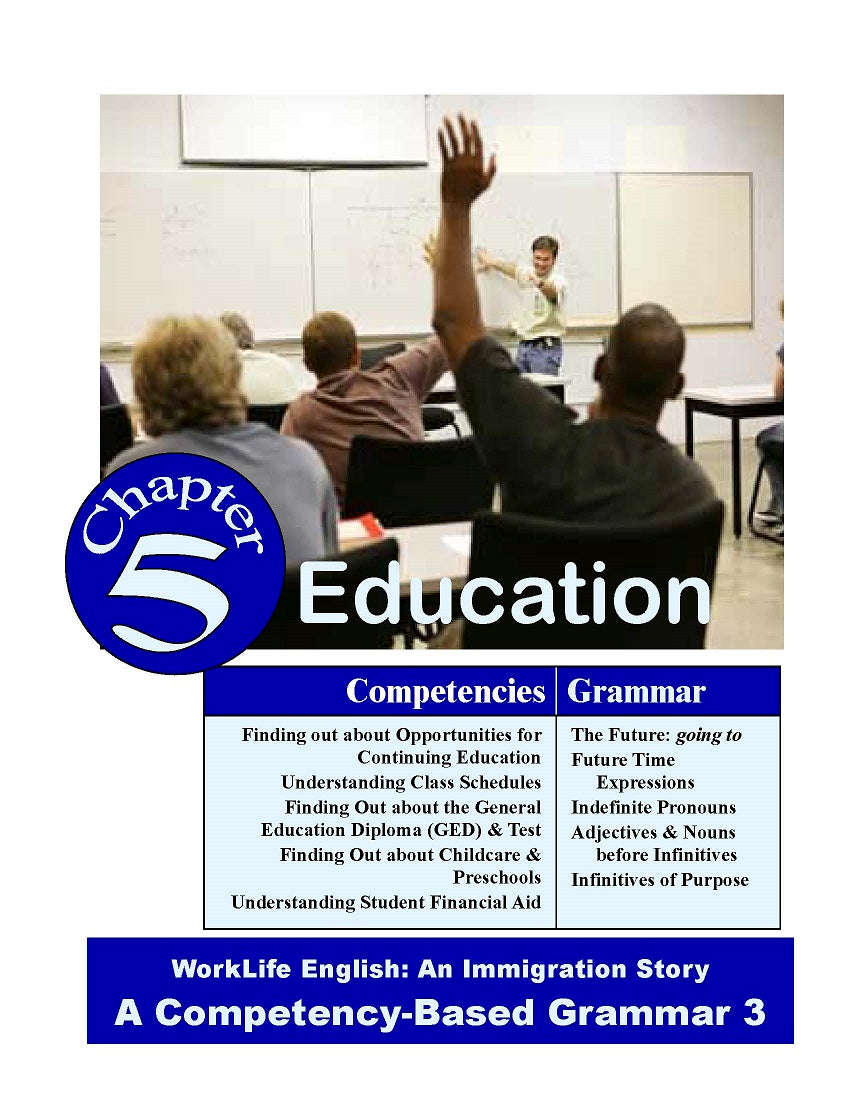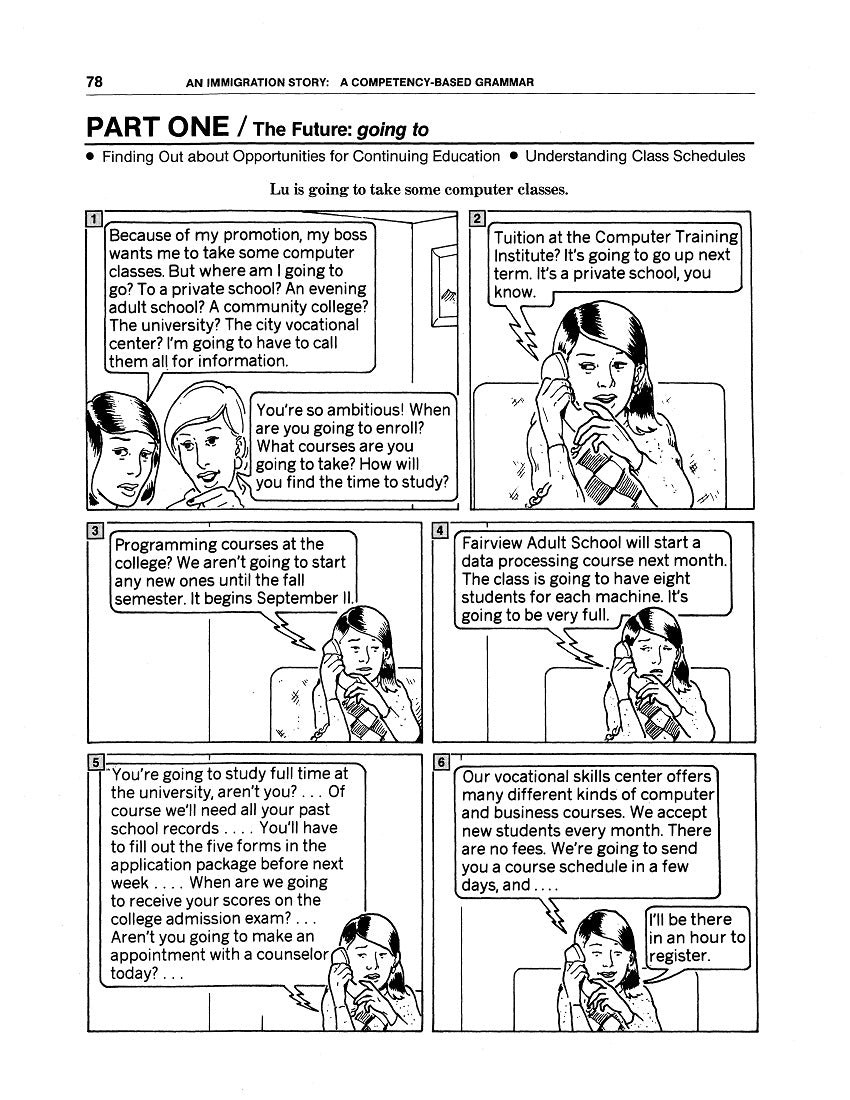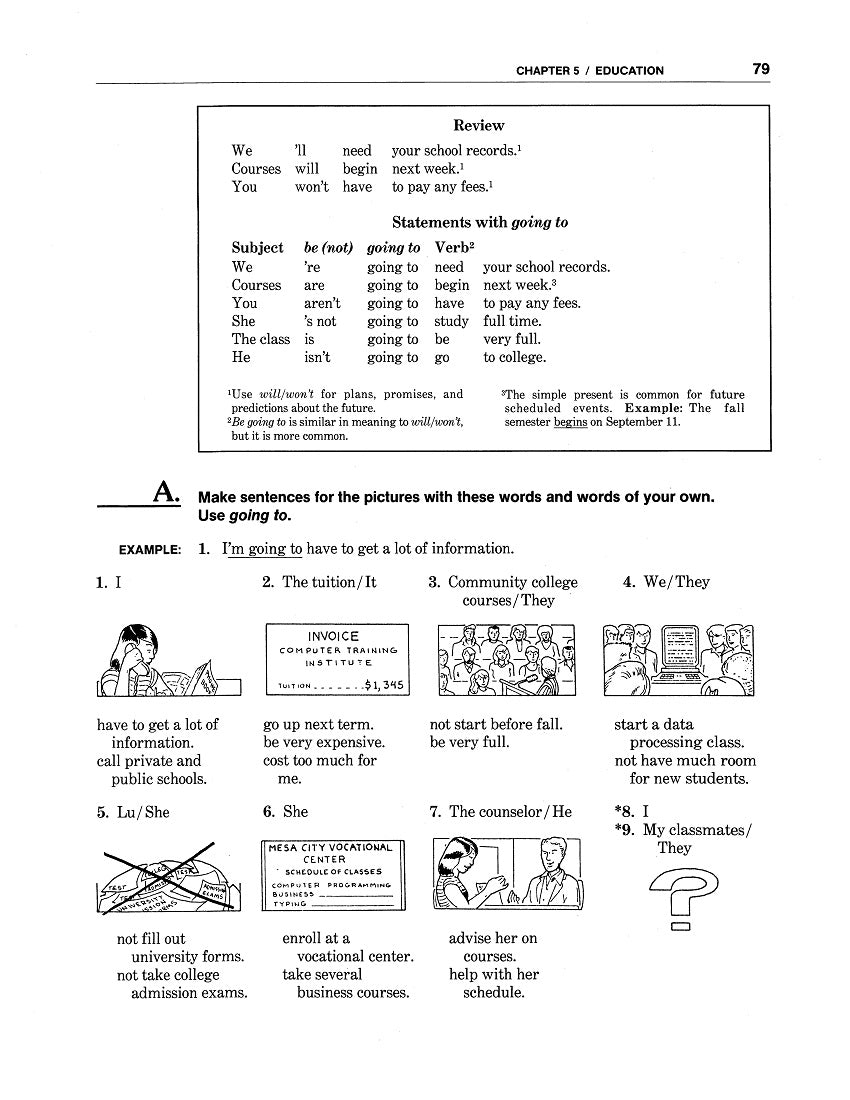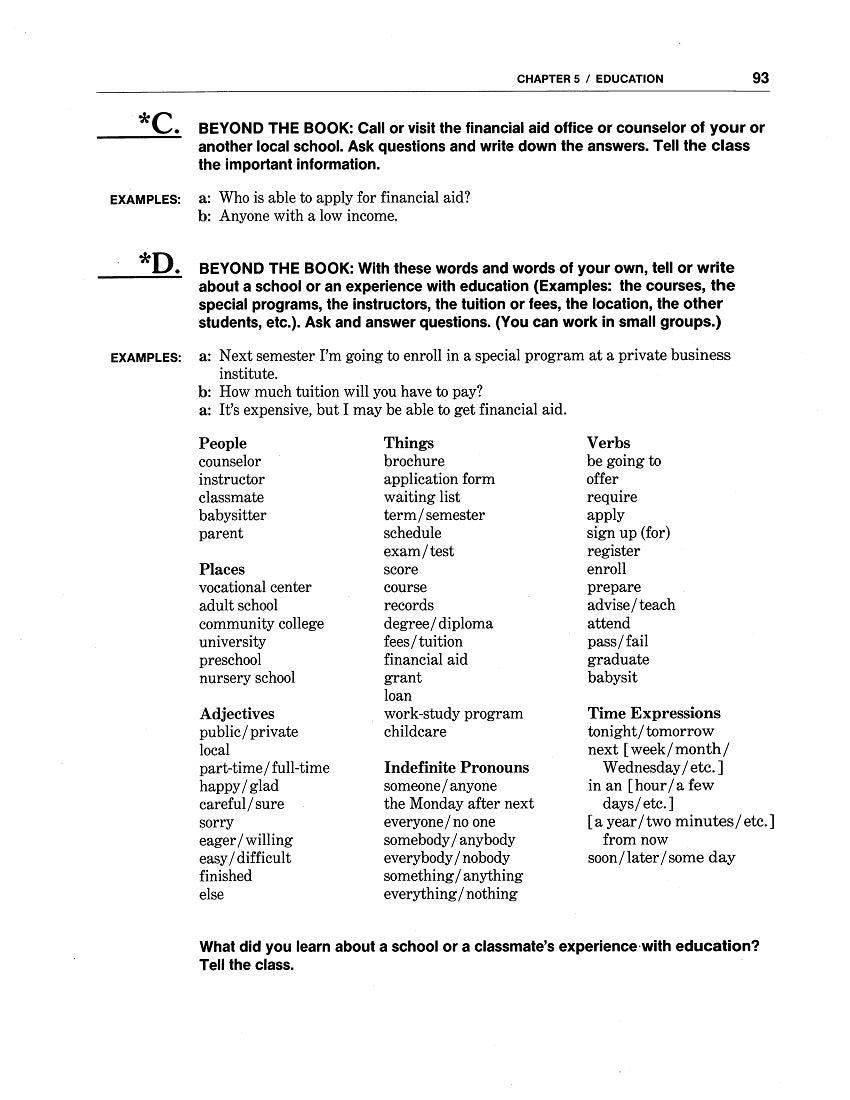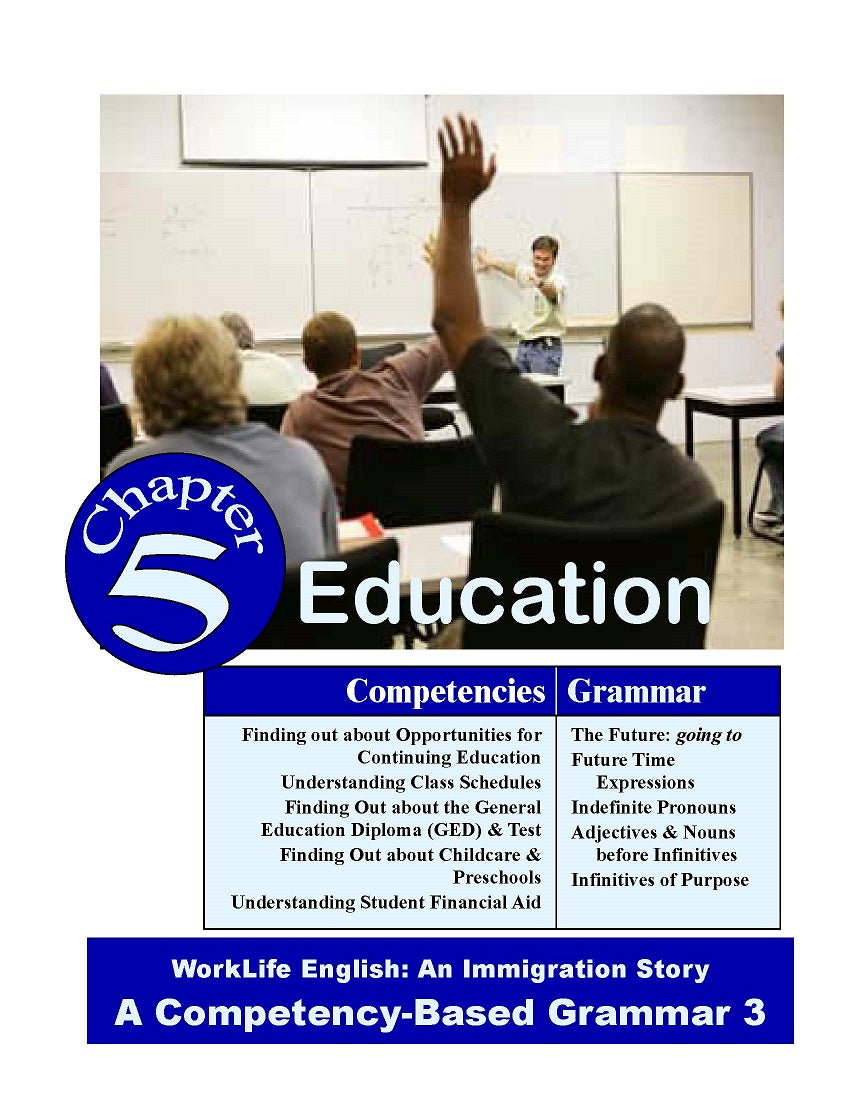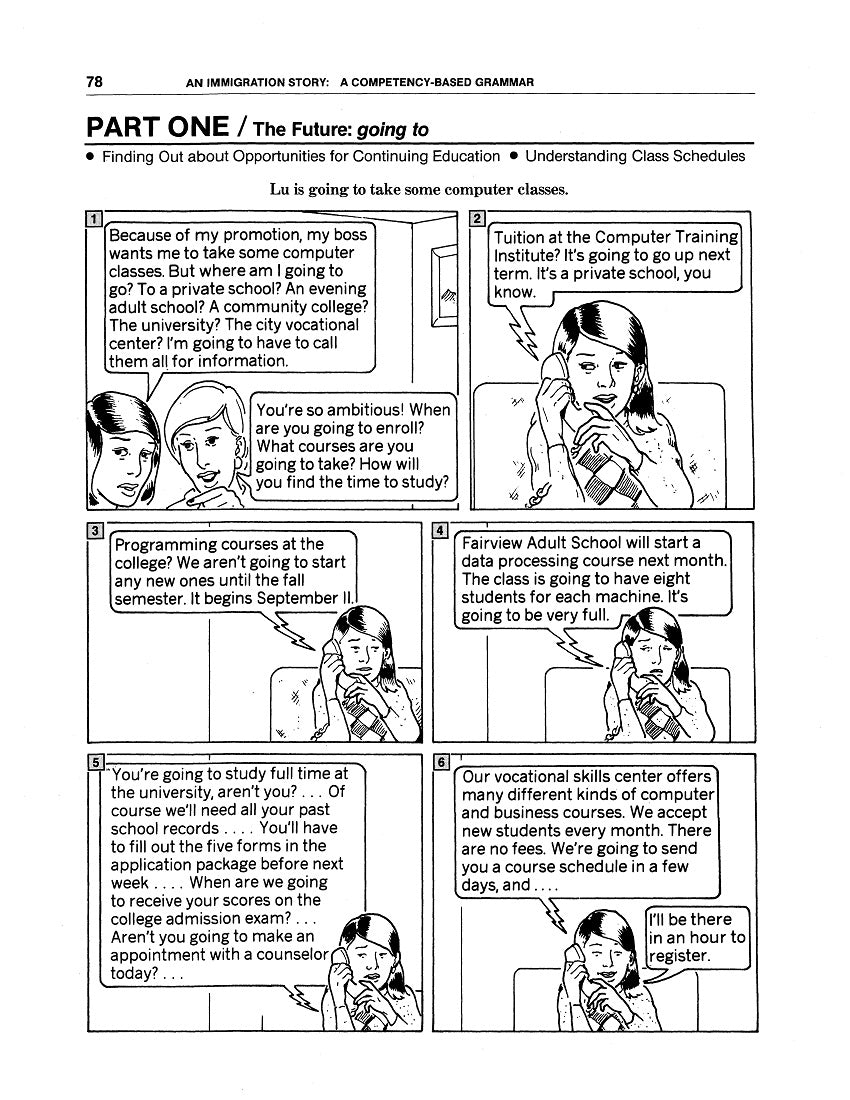1
/
of
4
Work/Life English
D-07.03 Use the Simple Future (be going to + VERB) with Time Expressions & Infinitives
D-07.03 Use the Simple Future (be going to + VERB) with Time Expressions & Infinitives
Regular price
$3.00 USD
Regular price
Sale price
$3.00 USD
Unit price
/
per
Parts One, Two, & Four of Chapter 5 (“Education”) of WorkLife English Grammar 3: An Immigration Story, pages 77-93
13 pages
Who It’s For: (Self) Teachers & Helpers at Intermediate Learning Levels
Why It’s Useful: With or without time adverbs, the am/is/are (not) going to + Base Verb pattern for expressing the future is very useful in exchanging information and thoughts. Especially when contrasted with will / won’t + Base Verb, other modal-verb phrasing, and/or wording with infinitives, its meaning or function is easy to interpret. Here are lessons on the subject of “Continuing Education” that serve to clarify both grammar and content.
What You’ll Do:
[1] Look at the Chapter Opener with its listings of Competencies + Grammar to be covered. Think/Tell what you (think you) already know or want to learn about these.
[2] On page 78 of Part One: the Future: Going to, “Lu is going to take some computer classes,” you’ll get an overview of educational opportunity for adults. Read (aloud) and understand its grammar and info. After reviewing relevant sentence structures, practice them by substituting or combining elements and adding your own vocabulary and knowledge.
[3] On page 82 of Part Two: Future Time Expressions, role-play the Strip Story “Dave is worried about his future.” In boxed explanations that follow, consider usage of vocabulary—adverb phrases of future time + indefinite pronouns like someone, anybody, or nothing in statements / questions. On pages 83-86, do and check relevant grammar practice; get into “Beyond the Book” activities and research.
[4] On pages 91-93 of Part Four: Summary of Future Forms, Indefinite Pronouns, & Infinitives, Obligations, put it all together. Demonstrate how you can generate future sentences, correct mistakes, and go beyond the text material to gather and share information relevant to you and those around you.
[5] While summarizing patterns and uses of modal verbs in Part Four, you can get and discuss information about car insurance.
Couldn't load pickup availability
